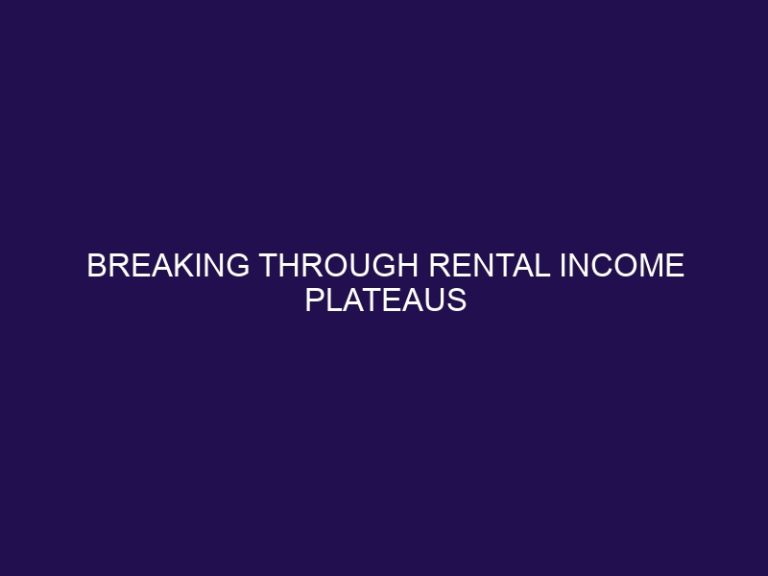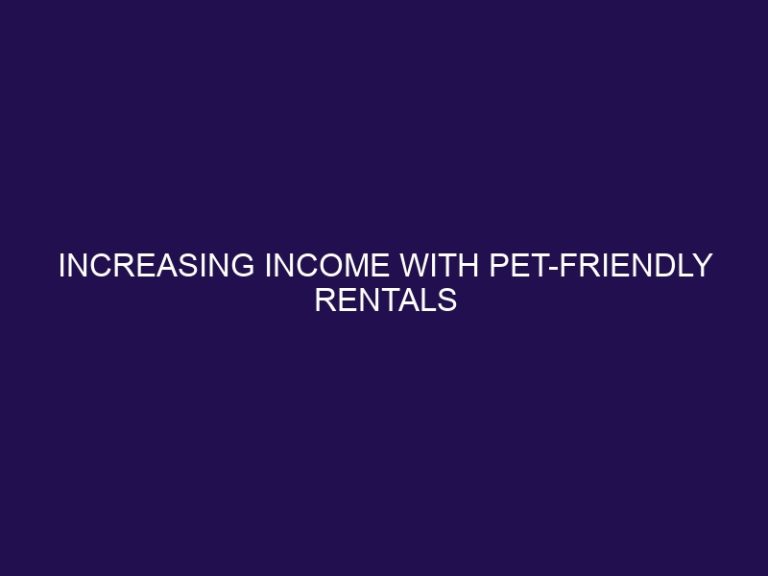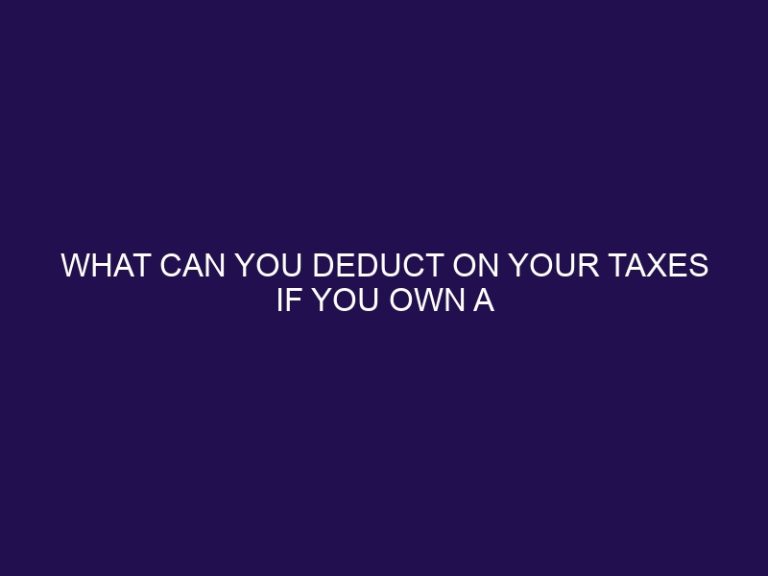5 common tenant scams targeting landlords & how to avoid them
Tenant scams targeting landlords are unfortunately common occurrences in the real estate industry. Being aware of these scams and taking preventive measures can help landlords avoid financial loss and legal complications. Here are five common tenant scams and strategies to avoid them.
Scam #1: Fake Identities and False References
Scammers create fake identities to deceive landlords, often using false references to appear legitimate. They may provide fake identification documents and fraudulent references to pass background checks.
Scam #2: Renting with Bad Checks
Scammers pay rent with fake or insufficient funds checks, which eventually bounce after the landlord has already provided access to the property.
Scam #3: Rental Deposit Fraud
In this scam, fraudsters collect security deposits and disappear, never intending to occupy the property.
Scam #4: Subletting Without Permission
Unscrupulous tenants sublet the property without the landlord’s knowledge or permission, leading to illegal activities or substandard living conditions.
Scam #5: Lease Fraud
Lease fraud involves altering or forging lease agreements, leading to misunderstandings, legal disputes, or non-payment of rent.
To avoid falling victim to these scams, landlords should implement preventive measures such as thorough tenant screenings, verifying identification documents and references, conducting background and credit checks, and adopting secure payment methods.
Scam #1: Fake Identities and False References
When it comes to renting out a property, landlords need to be aware of the potential scam involving fake identities and false references. Scam #1, which involves fake identities and false references, is a common scheme used by prospective tenants to deceive landlords. It entails the use of a fake name and fabricated reference information. To avoid falling victim to this scam, landlords should take measures to verify the identity and references of potential tenants. This can be done by conducting thorough background checks, directly contacting previous landlords, and verifying identification documents. By remaining vigilant and performing due diligence, landlords can effectively protect themselves from becoming victims of this type of scam.
How Do Scammers Create Fake Identities?
How do scammers create fake identities?
Scammers employ a range of techniques to deceive landlords and gain their trust, enabling them to create fake identities. These fraudulent individuals may resort to using stolen personal information or producing counterfeit documents, such as fake IDs, passports, or utility bills. Online platforms play a vital role in their schemes, as scammers rely on these platforms to establish credibility. They do so by posting false rental listings and presenting themselves as legitimate tenants. To safeguard against falling victim to these deceptive practices, landlords should take necessary precautions. Conducting comprehensive background checks and verifying tenant information, including confirmation of employment and income, is crucial. Additionally, contacting previous landlords for references provides valuable insights. Meeting prospective tenants in person and relying on intuition can also be effective tools in identifying potential scammers.
How to Avoid Falling for Fake Identities?
- How to Verify their identity: Request to see a valid government-issued ID and compare it to the information provided.
- How to Contact references directly: Don’t rely solely on the contact information provided by the scammer. Look up the references independently and reach out to them directly.
- How to Do a background check: Use online resources or hire a professional service to conduct a background check on the individual.
- How to Trust your instincts: If something feels off or too good to be true, it probably is. Don’t feel pressured to proceed with the rental.
- How to Use reputable platforms: Utilize trusted rental listing websites or work with a reputable real estate agent to minimize the risk of encountering fake identities.
Scam #2: Renting with Bad Checks
Renting with bad checks is a common scam that landlords should be aware of. To avoid falling victim to this scam, follow these precautions:
- Screen potential tenants thoroughly, including their financial history and credit check.
- Request multiple forms of payment, such as cash, cashier’s checks, or electronic transfers.
- Verify the authenticity of checks by contacting the bank and confirming the account holder’s information.
- Consider using online rent payment platforms that offer increased security and verification processes.
By implementing these safeguards, landlords can protect themselves from Scam #2: Renting with Bad Checks.
How Do Scammers Use Bad Checks?
Scammers use bad checks as a tactic to deceive landlords and gain access to rental properties. “How Do Scammers Use Bad Checks?” They typically provide a check for the security deposit or first month’s rent, knowing that it will bounce due to insufficient funds. This allows them to move in without actually paying. To avoid falling victim to this scam, landlords should take precautions such as verifying the potential tenant’s identity, conducting thorough background checks, and requesting alternative payment methods like cashier’s checks or electronic transfers. It is important for landlords to be vigilant and cautious when accepting checks and to verify funds before handing over keys or allowing a tenant to move in.
Pro-tip: Consider utilizing online payment platforms or requiring certified funds to reduce the risk of accepting bad checks.
Tips for Avoiding Renting with Bad Checks
To avoid renting with bad checks, it’s important to be vigilant and take precautionary measures. Here are some helpful tips:
- Verify the legitimacy of the renter by asking for identification and contact information.
- Thoroughly screen potential tenants by checking their credit history and references.
- Require a certified or cashier’s check for the rental deposit and monthly rent payments.
- Check the check’s authenticity by contacting the bank directly to verify the funds.
- Consider using online payment platforms to receive rent payments securely.
Fact: According to the Federal Trade Commission, rental scams and frauds resulted in a median loss of $400 per victim in 2020.
Scam #3: Rental Deposit Fraud
Rental deposit fraud, also known as scam #3: rental deposit fraud, is a prevalent scam that specifically targets landlords, putting them at a significant financial risk. This scam involves fraudulent individuals posing as interested tenants who offer to pay the rental deposit upfront in order to secure the rental property. Unfortunately, these scammers employ deceptive tactics such as providing counterfeit checks or false payment confirmations, resulting in substantial financial losses for the landlords. To effectively prevent falling victim to this type of scam, landlords must implement the following precautionary measures: independently verify the authenticity of the payment, conduct a comprehensive screening process for potential tenants, and strictly avoid accepting cash payments. It is highly recommended to seek guidance from legal professionals and utilize secure payment methods to safeguard your rental business against such scams.
How Does Rental Deposit Fraud Occur?
How Does Rental Deposit Fraud Occur?
Rental deposit fraud occurs when scammers deceive tenants into paying a deposit for a rental property that does not exist or is not owned by the scammer. They often advertise attractive properties with below-market rental prices to lure victims. The scammer may provide fake documents, such as lease agreements and keys, and request payment of the deposit through untraceable methods. By the time the victim realizes they have been scammed, the scammer has disappeared with the deposit money. To avoid rental deposit fraud, it is important to verify the legitimacy of the property, landlord, and lease agreement before making any payments.
Preventive Measures to Avoid Rental Deposit Fraud
- To prevent rental deposit fraud, follow these preventive measures to avoid rental deposit fraud:
- Prior to signing any agreements, it is important to research the landlord or property management company.
- Ensure the legitimacy of the rental property by conducting a thorough inspection.
- Always insist on a written lease agreement that clearly outlines deposit details and terms as a preventive measure to avoid rental deposit fraud.
- Before moving in, take photos or videos of the rental property as evidence of its condition to prevent rental deposit fraud.
- For the security of your deposit, use a secure payment method like a cashier’s check or bank transfer.
- Keep copies of all communication and documentation related to the rental transaction to prevent rental deposit fraud.
- Read and understand your rights and responsibilities as a tenant regarding deposits as a preventive measure to avoid rental deposit fraud.
Pro-tip: Be cautious of any landlord or property manager who pressures you to make a hasty decision or asks for an unusually large deposit upfront. Trust your instincts and take your time to ensure a secure and legitimate rental transaction.
Scam #4: Subletting Without Permission
- Tenant deception: Some tenants engage in subletting without informing or obtaining permission from the landlord, which can be considered a scam.
- Financial risks: Subletting without permission can lead to potential financial losses for landlords, as the subtenant may fail to pay rent or damage the property.
- Legal consequences: Subletting without permission is a violation of the lease agreement and can result in legal action against the tenant, making it a serious matter.
- Preventing subletting scams: Landlords should include specific clauses in the lease regarding subletting and conduct thorough background checks on potential tenants to avoid falling victim to scams.
- Regular inspections: Landlords should conduct regular inspections of the property to ensure that no unauthorized subletting is taking place, preventing any subletting without permission from happening.
What are the Risks of Unauthorized Subletting?
Unauthorized subletting poses significant risks for both landlords and tenants. For landlords, the risks of unauthorized subletting include the presence of unknown individuals residing in their property without undergoing proper screening or background checks. This situation can lead to potential damage to the property, potential legal issues, and a breach of the lease agreement. Furthermore, tenants who engage in subletting without seeking permission are also at risk. They face the possibility of eviction, the loss of their security deposit, and potential legal consequences. Additionally, unauthorized subletting can create conflicts with the original tenant and disrupt the living arrangements. Consequently, it undermines trust between landlord and tenant, while also having severe financial and legal implications for all parties involved.
In a recent real-world scenario, a tenant chose to sublet their apartment without notifying the landlord. Unfortunately, the subtenant turned out to be engaging in illegal activities, resulting in the involvement of the police and significant damage to the property. This occurrence forced the original tenant not only to face eviction and legal consequences but also to bear the expenses for repairs and legal fees, ultimately placing a substantial financial burden upon them. This event serves as a poignant reminder of the multitude of hazards associated with unauthorized subletting. It emphasizes the crucial significance of open communication and adherence to lease agreements to avoid such detrimental consequences.
How to Prevent Unauthorized Subletting?
To prevent unauthorized subletting, landlords can take the following steps on How to Prevent Unauthorized Subletting:
- Include a subletting clause in the lease agreement, clearly stating that subletting is not allowed without the landlord’s explicit permission.
- Conduct thorough tenant screenings to ensure that prospective tenants have a good rental history and are less likely to engage in unauthorized subletting.
- Regularly inspect the property to identify any signs of unauthorized occupants or subletters.
- Maintain open lines of communication with tenants and encourage them to report any suspicions or concerns regarding subletting.
- Implement a strict guest policy that limits the number of overnight guests and the duration of their stay.
- Monitor online platforms and listings for any advertisements or postings related to subletting the property without permission.
In a recent case, a landlord discovered unauthorized subletting when neighbors complained about noise and excessive foot traffic in an apartment. The landlord took immediate action, investigating the situation and evicting the subletters. This incident highlighted the importance of proactive measures to prevent unauthorized subletting and maintain the integrity of the rental property.
Scam #5: Lease Fraud
Lease Fraud, the fifth and final scam in the series of common tenant scams targeting landlords. Discover the cunning methods utilized in lease fraud and learn essential precautions to stay one step ahead and avoid becoming a victim. Don’t let deceitful practices undermine your landlord-tenant relationships; arm yourself with knowledge and protect your property rights.
Methods Used in Lease Fraud
Lease fraud is a common tenant scam that landlords need to be aware of. There are several methods used in lease fraud that scammers employ to deceive landlords and manipulate lease agreements. These methods include forging documents, providing false income verification, and using fake identification. Landlords can protect themselves by thoroughly vetting potential tenants, verifying the information provided, and conducting background checks. It is also crucial to educate oneself about the various tactics used in lease fraud to be able to recognize and avoid falling victim to these scams. Fact: Lease fraud accounts for a significant portion of fraudulent activities in the real estate industry.
Precautions to Avoid Falling Victim to Lease Fraud
To avoid falling victim to lease fraud, it is essential to take certain precautions. Here are some steps you can follow to ensure your safety:
1. Thoroughly Research the Landlord or Property Management Company: Before signing any lease agreement, it is crucial to thoroughly investigate the background and reputation of the landlord or property management company.
2. Verify Ownership of the Property: To confirm that the person renting the property is the actual owner or authorized agent, it is important to request legal documentation if necessary. This will help you avoid potential scams.
3. Personally Visit the Property: Insist on visiting the property in person before making any payments or signing the lease. By doing so, you can assess the condition of the property and ensure it meets your expectations. Be cautious of landlords who make excuses or are unavailable for viewings.
4. Insist on a Written Lease Agreement: Always insist on having a written lease agreement that clearly includes all the necessary details and terms. This agreement will serve as a legally binding document to protect your rights as a tenant.
5. Choose Payment Methods with Clear Paper Trails: To ensure payment security and transparency, it is advisable to avoid making cash payments. Instead, opt for methods that provide a clear paper trail, such as checks or online bank transfers.
Remember, if a deal seems too good to be true or if you feel pressured to make quick decisions, it is crucial to take a step back and conduct further due diligence. By following these precautions, you can protect yourself from falling victim to lease fraud.
Pro-tip: Always prioritize your safety and conduct thorough research before entering into any lease agreement. This will help you make informed decisions and avoid fraudulent situations.
Frequently Asked Questions
What are some common renter scam tactics targeting landlords?
Common renter scam tactics targeting landlords include faking employment and rental history, forging checks, providing fraudulent credit reports, and lying about co-tenants. These tactics are used to deceive landlords and gain access to rental properties under false pretenses.
How can I recognize tenant scams and avoid falling victim?
To recognize tenant scams and avoid falling victim, landlords should utilize tenant screening and verification processes. This includes running background checks on all co-tenants, ordering credit reports directly, checking pay stubs for inconsistencies, and verifying employment references. Being cautious of red flags such as applicants avoiding fees or pushing back on providing documents is also important.
How can I protect my property investment from rental scams?
To protect your property investment from rental scams, it is crucial to screen potential tenants thoroughly. This involves verifying their trustworthiness, employment history, and financial information. Additionally, maintaining a strict screening process, avoiding accepting checks from unfamiliar sources, and staying vigilant for red flags can help prevent scams and protect your investment.
What should I do if I suspect a tenant is involved in a scam?
If you suspect a tenant is involved in a scam, it is important to take immediate action. Document any suspicious behavior or evidence, consult legal advice, and follow proper eviction procedures. By addressing the situation promptly and decisively, you can minimize potential financial losses and protect your property.
What can landlords do to avoid renting to unscrupulous renters?
Landlords can take several measures to avoid renting to unscrupulous renters. Firstly, they should implement a thorough tenant screening process, including background checks and reference verification. Secondly, landlords should trust their instincts and carefully assess an applicant’s behavior and credibility during the application process. Finally, setting clear expectations and establishing a good landlord-tenant relationship based on communication and trust can help attract responsible tenants and deter scammers.
How can I protect myself from fraudulent checks and stolen appliances?
To protect yourself from fraudulent checks and stolen appliances, it is essential to be cautious and establish strict payment and security measures. Always verify the validity of checks by contacting the issuing bank directly before cashing them. Additionally, conducting regular property inspections and documenting the condition of appliances can help identify any signs of theft or damage. Taking these precautions can minimize financial losses and maintain the integrity of your rental property.







